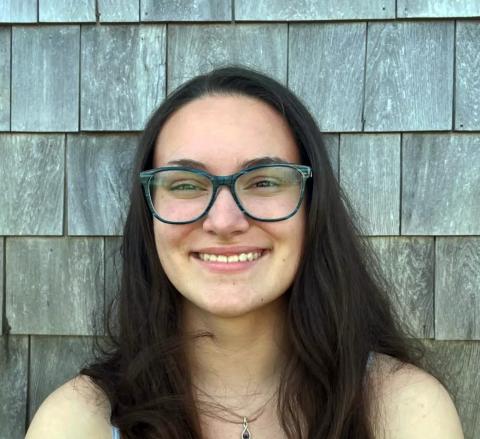
Olivia Boyan is a zoology major from Hartford, Connecticut.
COLSA: Tell us about your research in as non-technical language as possible.
Olivia Boyan: For our research, we’re seeking to quantitatively characterize moose vocalizations to use for a passive acoustic detector, which can monitor populations without physically disturbing their habitat. Most published papers focus on the qualitative characteristics of moose calls, such as what the calls are used for rather than the quantitative characteristics. Our research looked at the differences between male, female, and calf calls to use for a passive acoustic detector.
We intended to do our research based on audio from recorders we placed in the White Mountains National Forest, however, we were unable to retrieve these recorders due to the harsh conditions. Instead, we turned to YouTube, where we found many videos of moose calls from hunters and people recording from their backyard. We found that males have the lowest frequency calls, calves the highest, and females were in-between males and calves. We also tested duration, finding that females had the longest calls compared to males and calves.
COLSA: What challenge/issue does your research seek to address?
Olivia: Due to the lack of research on moose vocalizations, we wanted to quantify the characteristics of their calls to use in an acoustic detector that will be used for automated moose monitoring. Being able to monitor populations without physically being present, and therefore disturbing their habitat, helps researchers observe their behaviors without affecting them.
COLSA: What has your experience conducting undergraduate research been like so far?
Olivia: I have worked in UNH’s Ecological Acoustics and Behavior Lab since my freshman year at UNH, and it has been an amazing experience. I've learned about how labs work, what it is like to conduct research, how to present my findings, and how to communicate with others.
COLSA: Are there funding sources and/or collaborators we should acknowledge? If so, please list.
Olivia: This project was done in collaboration with Dr. Laura Kloepper, Remington J. Moll, and New Hampshire Fish and Game. The research was funded by New Hampshire Agriculture Experiment Station.
COLSA: What do you love most about UNH?
Olivia: I like the opportunities UNH gives for research and career development. I feel that there is always someone willing to help me with questions or support my success as a student.